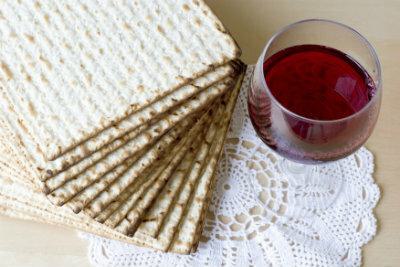Ethics and History in Four Little Questions


Ethics and History in Four Little Questions
This year, Passover, which celebrates the liberation of the Jewish people from the cruel reign of Pharaoh, begins on the evening of Friday, April 22nd. Over the first two nights of the holiday, families and friends will gather together to experience a Seder, a re-telling of their story followed by a festive meal. During the Seder, Four Questions are asked, typically by the youngest in attendance. The questions, and their answers, fulfill our obligation to tell the story to our children, and also piques everyone’s interest. Here, the Jewish Home’s Skirball Director of Spiritual Life, Rabbi Karen Bender, delves deeper into the Four Questions.

I want to discuss the famous Four Questions with you. Perhaps you learned these questions in religious school. Perhaps you taught these questions to your own toddlers at bath time. Maybe you never quite learned them yourself but you hoped your grandchildren would. Ma nishtanah halila hazeh? “How is this night different from all other nights?”
First of all, this night of Passover is different because of the notion of questions. The entire Seder is designed to stimulate curiosity and questioning. After all, the ability to question is a foundational Jewish value. To question is to reject the status quo and to use one’s imagination to envision a life and world that is more fair, just and loving. To question is to reject what is and to visualize what can be.
Slaves cannot ask questions. So inasmuch as the Seder is a reenactment of the Exodus from Egypt, we celebrate our freedom by asking. We ask because we can. The act of asking is so significant that the rabbis decreed even if you happen to find yourself alone on Passover, you, an adult, are supposed to ask the four questions out loud.
Let’s look at their content. Abravanel taught that the first two questions remind us of slavery and the last two acknowledge our freedom:
Question 1. On all other nights we eat bread or matzah but on this night we eat only matzah. We eat matzah at the Seder to remember our hurried escape from Egypt.
Question 2. On all other nights we eat all kinds of vegetables but on this night we eat bitter herbs. The bitter herbs are to remind us of the bitterness of Egypt.
Question 3. On all other nights we don’t even dip once but on this night we dip twice. Remember the two dippings? Parsley into salt water and the bitter herbs into the haroset. To understand this one, we have to realize most of our ancestors were poor at most times in most places. In order to dip at a meal you need to have stuff to dip into. At a feast there are lots of stews and sauces and courses and things to dip into them. Usually our ancestors were lucky to have a little bit of bread and perhaps one other item. But on this night we celebrate freedom and eat like emperors.
Question 4. On all other nights we eat sitting upright or reclining. On this night we recline. Slaves do not recline while they are eating. Free people who have plenty to eat can recline and be fed.
There is one more aspect to the four questions I have noticed over the years. If you change one vowel and say Ma nishtaNEH (instead of Ma nishtanAH), then the question morphs into, “What are we going to change tonight?” Change and transformation can occur. The pharaoh wouldn't change so the Israelites had to. They changed their thinking, their perception and ultimately their circumstances.
Passover eve is a night of reenactment and change. You begin the evening as a slave; you end it as a free person. The goal of the role playing is to change you inside. And the best way to change at your Seder is to ask these two questions of yourself: What is society's Egypt? What is my personal Egypt?
Have a Sweet Pesach!
Rabbi Karen Bender
Skirball Director of Spiritual Life, Grancell Village Rabbi